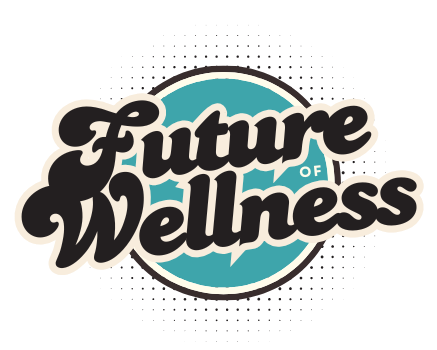We all eat several times a day, yet many of us rarely pause to consider why we make the choices we do.
After more than a decade of chatting with plant-powered friends at farmers’ markets and swapping data sets back in my analyst days, I’ve noticed that long-term vegans tend to share a handful of insights the rest of us overlook.
Whether you’re vegan-curious, a flexitarian dabbling in oat-milk lattes, or just a lifelong learner, these seven perspectives can sharpen your own decision-making—on and off the dinner plate.
1. Every meal is a moral choice
Halfway through a trail run last spring, a friend asked why vegans “take food so personally.” Her question reminded me of psychologist Melanie Joy’s observation:
“We send one species to the butcher and give our love and kindness to another … apparently for no reason other than because it’s the way things are.”
Vegans see that disconnect and refuse to outsource their ethics to habit. Instead of treating dinner as a default setting, they frame it as an everyday referendum on compassion.
That perspective can spill into other arenas—how you speak to a barista under pressure or the patience you show a parent who’s repeating the same story.
When you notice the ripple effects of seemingly small actions, you start crafting a life aligned with your deeper values.
Try it: Before your next meal, ask, “Whom or what does this choice impact?” Even if you don’t change the menu, the question nudges you from autopilot to intention.
2. Nutrition isn’t guesswork—it’s a learnable skill
As a former numbers nerd, I love that vegan veterans approach nutrients the way analysts approach spreadsheets: locate the gaps and plug the cells.
Mainstream eaters often assume protein, calcium, or B-12 are mysteries locked behind a steak-house door, but nutrition research disagrees. According to a WebMD review, “A balanced vegan diet can provide all the nutrients you need to be healthy.”
Vegans master label-reading, supplement timing, and the alchemy of lentils plus vitamin-C-rich veggies for iron absorption. The bigger win?
They build confidence in their ability to acquire new knowledge and troubleshoot obstacles—whether that means learning retirement investing basics or figuring out bike maintenance instead of defaulting to the car.
Try it: Pick one nutrient you’re fuzzy on (say, omega-3s) and spend ten minutes today finding two plant sources and one simple recipe that features them. Mastery starts with micro-moves.
3. The planet is on your plate
An environmental study led by Oxford researcher Joseph Poore concluded that “A vegan diet is probably the single biggest way to reduce your impact on planet Earth.”
Vegans internalize this data so deeply that carbon footprints become dinner-table math: those black beans take a fraction of the land, water, and greenhouse gases that beef requires.
Once you see environmental costs hidden in a latte or burger, you might start spotting the shadow price of other habits—like disposable fashion or habitual doom-scrolling that drains mental resources.
Try it: Scan your fridge and name the three items with the heaviest environmental toll. Could one be swapped this week for a lower-impact stand-in? Small edits compound faster than we think.
4. Comfort zones shrink your compassion
Early in my plant-based experiment, I panicked over Thanksgiving—would Grandma implode if I skipped her turkey?
Seasoned vegans reassured me: the social discomfort fades, but the integrity you earn stays. Stretching that comfort zone builds emotional range.
You learn to handle raised eyebrows, navigate menu negotiations, and sometimes hear, “But bacon though!” without losing your cool.
That same resilience transfers elsewhere: negotiating a raise, confronting a friend kindly, or stepping into a new running club when you’re the slowest in the pack.
When you’ve weathered awkward potlucks, a tough conversation at work feels less intimidating.
5. Social resilience is a muscle you train
Choosing the veggie burger can feel like declaring a minor rebellion in certain circles.
Long-term vegans develop scripts, humor, and patience to keep relationships intact.
They know how to read a room and decide when to educate, when to empathize, and when to change the subject to last night’s game.
Practicing that balance teaches boundary-setting without hostility—a skill many of us could use in digital debates or holiday politics.
My own cue is to swap lecture for curiosity: “What dish do you look forward to every year?” That question disarms tension and keeps the table a space for shared stories, not moral scorecards.
6. Creativity thrives within constraints
Back when my pantry staples were “whatever’s on sale,” I ignored half the produce aisle.
Switching to mostly plants forced me to court misfit vegetables—kohlrabi, anyone?—and invent new flavor combos.
The restraint sparked ingenuity, much like how minimalist packing makes you a smarter traveler.
Constraints can fuel innovation beyond food: limiting screen time births novel hobbies; trimming a project’s budget can inspire elegant solutions.
Think of each boundary as a design brief rather than a cage.
Try it: Challenge yourself to cook one meal this weekend using only ingredients already languishing in your cupboards. Notice how creativity pops when options narrow.
7. True abundance is about alignment, not excess
Vegans often report feeling more satisfied despite giving up animal products, because their choices sync with their ethics, health goals, and ecological concerns.
That harmony is a quiet form of abundance—less guilt, more clarity.
You don’t need to convert fully to taste it. Maybe it’s downsizing your closet to favorite pieces, or aligning spending with experiences rather than impulse buys.
The through-line is intentionality: when actions, values, and identity click into place, life feels surprisingly roomy.
Final thoughts
You don’t have to label yourself “vegan” to borrow these insights.
Start with a question at breakfast, a quick nutrient audit at lunch, or a meat-free dinner that doubles as an emissions-cutting experiment.
Each small test expands your perspective, just as my first awkward farmers’-market volunteer shift taught me more about local food systems than any economics lecture.
The goal isn’t perfection; it’s curiosity.
When you treat daily choices as data points instead of dogma, you empower yourself to iterate toward a life that feels lighter—on your body, your mind, and yes, the planet.
Who knew a humble bowl of chili could teach us that?









